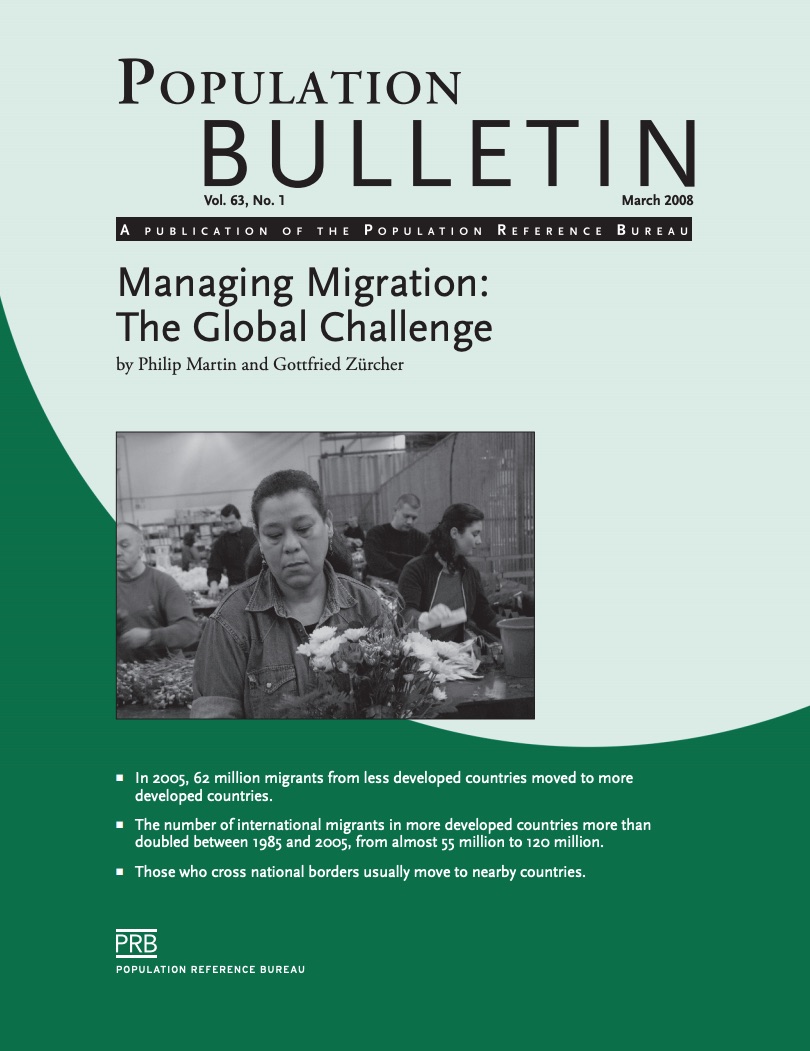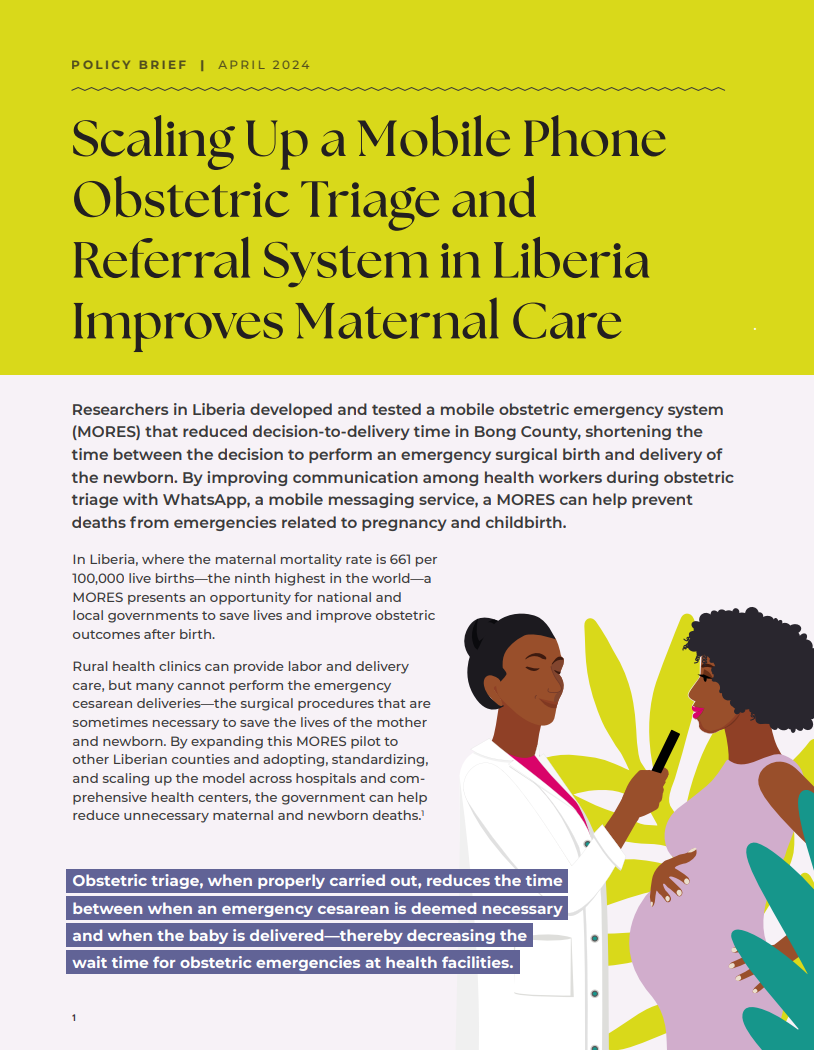Population Bulletin, vol. 63, no. 1: Managing Migration–The Global Challenge
(March 2008) The number of international migrants is at an all-time high. There were 191 million migrants in 2005, which means that 3 percent of the world's people left their country of birth or citizenship for a year or more.





